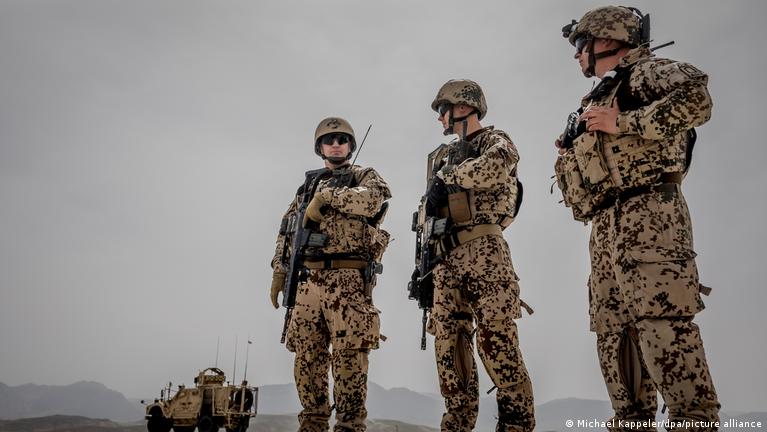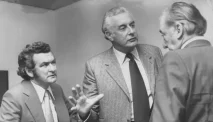Diksia.com - The US-United Nations (UN)-led military operation in Afghanistan lasted 20 years – from 2001 to 2021.
Germany was also involved in the mission. Eventually, however, the international mission was expelled and the Taliban returned to power in Afghanistan.
Since November 2021, a commission in the German Bundestag has been trying to find out why this happened and what lessons can be learned from this ordeal.
The commission convened experts from politics, the military, development cooperation and security authorities. One of the most prominent sources is former Foreign Minister Joschka Fischer (Greens).
Two years after the hasty withdrawal of German Bundeswehr troops in August 2021, he defended his military and humanitarian commitment: “I don’t think it was a mistake.”
said Joschka Fischer, who was foreign minister at the beginning of the Afghanistan mission. At that time, Germany participated in Afghanistan on the basis of “unreserved solidarity” with the United States, which suffered the attacks of September 11, 2001, and in accordance with the principle of NATO’s defense unity.
Joschka Fischer, who was in office until 2003, justified the failure of the Afghanistan mission with a lack of military power and the associated lack of political influence. A lesson he drew from the mission: “That we should prepare for more difficult missions and prepare the skills.”
Fischer stressed that he saw no contradiction between civil aid, security measures and a strong military presence.
Joschka Fischer’s assessment after the withdrawal of international troops is pessimistic: Afghanistan will remain an unsafe place for a long time, and a humanitarian catastrophe is in sight.
“It is clear that the Taliban will not give up anything … which has been achieved through small and arduous victories in the reconstruction process,” said the former German foreign minister.
Girls and women will suffer the most when the Taliban return to power. At that time, the former Minister for Development Cooperation, Heidemarie Wieczorek-Zeul (SPD), campaigned specifically for women’s rights.
“Is it all for nothing? No” he said. In the last 20 years, a “nucleus of hope” has emerged that no one can deny.
For Wieczorek-Zeul, the Doha agreement on the withdrawal of American troops, which the United States negotiated with the Taliban in 2020 without the participation of the Afghan government, is an “unforgivable mistake, even a crime against women’s rights”.
Former Defense Minister Thomas de Mazière (CDU) also drew a bitter conclusion from Germany’s engagement in Afghanistan: “The military power of the Taliban is underestimated, the military and political power of the government is exaggerated.”
“Although the armed forces can help ensure the country’s development, they cannot do it alone,” stressed Thomas de Maizière. “But the Bundeswehr will not be pushed into doing what it cannot and should not do – but that’s the way it is.”
Despite the failure of the Afghanistan mission, the former defense minister also concluded that Germany had made a name for itself as a security power.
“Especially because the Bundeswehr has shown that it can command an army, that it can fight, that it is a reliable military partner – even under threat.”
The Federal Intelligence Service (BND) also plays an important role in Afghanistan. The BND is responsible for information about the security situation.
But even ten years after the start of the mission, the framework conditions are still not right, says Gerhard Schindler, President of the BND from 2011 to 2016: “Anyone who wants such a foreign mission must also deal with and deal with it.” Adjust the smallest screws. ” ”
According to Gerhard Schindler, the BND keeps the federal government informed about the development of the security situation in Afghanistan.
On the map, areas controlled by the Afghan government are highlighted in green, areas occupied by the Taliban are highlighted in red. And the red color is getting longer and longer.
The economic situation never developed positively at that time either. “On the contrary, the cultivation of opium poppy and its processing into heroin is increasing rapidly,” said Gerhard Schindler, referring to the drug market, an important source of finance for the Taliban.
During a visit to Afghanistan at the time, he noted “the continuing deterioration of the situation due to the total militarization on the streets”.
Gerhard Schindler recalls that you only have to look into the “sad eyes of the people” to see that the country is “in decline”.
The BND is increasingly questioning the usefulness of an engagement in Afghanistan. He himself had doubts during his tenure.
“And I still have those doubts to this day,” he concluded.






